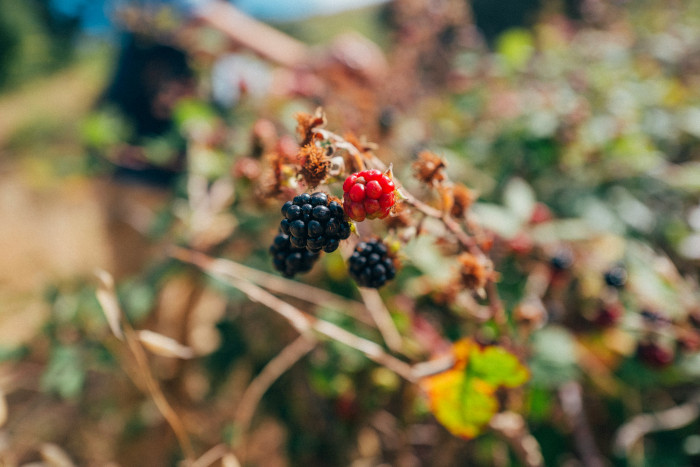In an era dominated by technology and convenience, the resurgence of interest in self-reliance and preparedness is a testament to the unpredictable nature of our world. Whether driven by concerns over natural disasters, economic instability, or simply a desire to reconnect with traditional ways of life, more people are turning to skills that our ancestors deemed essential. Here, we delve into ten forgotten skills every prepper should learn to ensure they are prepared for any situation.
Sourdough Baking
Baking bread from scratch is a satisfying and practical forgotten skill, and sourdough baking, in particular, is invaluable. Unlike conventional bread-making, sourdough uses wild yeast from the environment, which means you can make bread without store-bought yeast. This process not only provides a sustainable source of nourishment but also taps into a tradition that dates back thousands of years. A good starter, flour, water, and time are all you need to produce delicious, nutritious bread.
Grafting
In an age of supermarket abundance, the ability to grow and propagate your own fruit trees is a powerful forgotten skill. Grafting, the process of joining two plants so they grow as one, allows you to cultivate various fruit types on a single tree or preserve a beloved heirloom variety. This technique ensures a sustainable and diverse food source, vital for long-term self-sufficiency.
Drying Foods
Preservation methods are critical for any prepper, and drying foods is one of the oldest and most reliable techniques. Dehydrating fruits, vegetables, and meats removes moisture, inhibiting the growth of bacteria and mold. Dried foods are lightweight, have a long shelf life, and retain most of their nutritional value, making them perfect for long-term storage and easy transportation.
Butchering an Animal
While not for the faint of heart, butchering an animal is a vital skill for those who wish to maintain a self-sufficient lifestyle. Knowing how to humanely kill and process an animal ensures a steady supply of meat, hides, and other by-products. This skill includes understanding the anatomy of the animal, proper sanitary practices, and techniques for preserving the meat through smoking, curing, or freezing.
Foraging
Nature offers a bounty of edible and medicinal plants, but knowing what is safe to eat requires knowledge and practice. Foraging involves identifying and harvesting wild plants, nuts, berries, and mushrooms. This skill not only supplements your food supply but also connects you deeply with your local environment. Preppers should study field guides and, if possible, learn from experienced foragers to avoid poisonous look-alikes.
Herbal Healing
Modern medicine might not always be available in a crisis. Learning about herbal healing can provide natural remedies for common ailments and injuries. Knowledge of plants and their medicinal properties, how to prepare tinctures, salves, and teas, and the ability to treat minor wounds, digestive issues, and infections are crucial components of this skill.
Mending Clothing
In a world where fast fashion reigns supreme, the ability to mend and make clothing is increasingly rare yet incredibly practical. Basic sewing skills can extend the life of your garments, save money, and reduce waste. Learning to patch holes, sew buttons, and repair seams ensures that you can maintain your wardrobe even when new clothes are hard to come by.
Predicting Weather
Before the advent of meteorological technology, people relied on keen observation to predict the weather. Understanding natural signs such as cloud formations, wind patterns, animal behavior, and even plant responses can help you anticipate weather changes. This skill is especially important for planning outdoor activities, ensuring crop success, and staying safe during potential storms.
Using Cloth Diapers
Disposable diapers, though convenient, are not always available and contribute significantly to landfill waste. Cloth diapers are a sustainable alternative. Learning how to properly use, wash, and maintain cloth diapers ensures you can provide for your baby’s needs without reliance on disposable products, saving money and reducing environmental impact.
Bartering
In a world where currency may lose its value, bartering can become an essential means of acquiring goods and services. Developing bartering skills involves understanding the value of your own goods and services, effective negotiation techniques, and the ability to establish fair trades. Building a network within your community can also enhance your bartering opportunities.
Tanning
The process of tanning animal hides transforms them into durable leather, an invaluable material for making clothing, footwear, tools, and shelter. Tanning is an ancient skill that involves cleaning the hide, removing excess flesh and fat, and treating it with natural tannins derived from tree bark or other plant materials. Mastering this technique allows you to utilize every part of an animal, reducing waste and ensuring a sustainable supply of leather goods. This forgotten skill not only provides practical benefits but also connects you to traditional craftsmanship, fostering a deeper appreciation for resourcefulness and self-reliance. Whether making moccasins, belts, or waterproof containers, tanning is an essential skill for any prepper aiming for complete self-sufficiency.
Reviving these forgotten skills not only prepares you for potential crises but also fosters a sense of independence and connection to tradition. Each skill requires time, practice, and a willingness to learn, but the rewards are substantial. Embracing these practices can lead to a more self-sufficient and resilient lifestyle, ready to face whatever challenges the future may hold.
